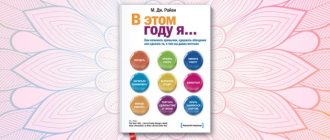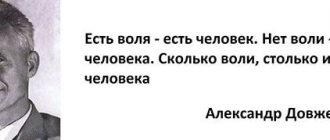Individuality is the possession of a set of certain characteristics that help to distinguish an individual from others and establish his uniqueness. Individuality includes a set of qualities that help distinguish a person from representatives of his species, as well as a phenomenology of the ways in which they are interrelated. This set of qualities develops and is shaped by the surrounding people, society, family, and accumulated childhood experience. However, what is important is the extent to which the individual will independently shape himself and follow the chosen individual path.
In psychology, individuality is a combination of temperament, intelligence, character, qualities of perceptual processes, and interests. There are expressed and hidden forms. With pronounced individuality, external distinctive features appear - an open manifestation of abilities; with internal it is assumed that the unique abilities inherent in nature do not find a place of application or conditions for manifestation. Each of the stages of development, from the borrowed and generally accepted manner of behavior to its own uniqueness in life, has its own version, its own individual pattern. Man is called to develop his uniqueness.
Let's give a terminological definition with brief characteristics
I will list the most popular words that are often confused by ordinary people. Let's take a wide range of explanations - from everyday and colloquial to scientific.
Human
First of all, this name is used in biology, history, and archeology to distinguish a biological species that has certain structural features of the body and brain. It is an upright creature endowed with cognitive abilities. The word is appropriate to use both in combination with the more social “humanity” and when contrasted with the animal world. This can be called absolutely every one of our “relatives” - from children to adults.
Characteristic features that distinguish a person from a personality:
- The result of the evolutionary process.
- The presence of consciousness and self-awareness.
- The need to be in society, the need to communicate with others like oneself.
- A single way of communication through language, that is, the work of speech recognition and speech reproduction, with the exception of those who have lost the opportunity or have not had it since birth due to their anatomical structure.
- Features of anatomy - upright posture, the presence of fingers and toes.
- The ability to use devices to achieve a goal - any objects used for their intended purpose.
Subjective meaning (that is, a person as a subject of relationships, historical process and cultural) turns a biological species into a social being.
Individual
From Latin the word individuum is translated as “indivisible.” We actually completely copied it (but the meaning of “individual” is still different).
This concept can be called every person living in a group, society and possessing qualities that make him the same as his closest relatives. However, it is an independent unit with intrinsic value. This occurs due to the uniqueness of each individual organism on two levels - physiological and psychological. These are not qualities acquired over the years, but traits that are innate - narrow or wide-set eyes, the presence of a dimple on the chin, timbre of voice or ringing laughter.
Characteristics, what is the difference between an individual and personality:
- The object of the human population cannot be alone, it is inseparable from its own kind.
- Social activity - the presence of roles, statuses, for example, husband or wife, daughter, son, mother, father or neighbor, teacher, friend.
- The ability to adapt on a psycho-emotional level to those around you – the ability to find a compromise and adapt to the demands of society.
These are any qualities that are determined in comparison with other people, in contrast or in accordance.
How personality differs from individuality and individual, examples
The term comes from the word “Person”, and in English the tracing paper from Latin is established - persona.
The definition is inextricably linked with personal qualities, that is, it continues the concept of individuum, making it even more personalized. If earlier we talked about the individual characteristics that a person had innately, now it is more correct to talk about the acquired character, which is revealed in communication and relationships with other people. It is impossible to talk about personal traits without comparison or contrast with society.
Psychologist Daria Milai
Make an appointment
The term is used in many sciences and reflects individual characteristics. Let's go through scientific areas:
- Linguistics. “Language, speech and communicative personality.” Everything can be tied into a single knot; often these three persons develop synchronously. They are all in one person. The quality can be called acquired, because the child at birth does not have speech. The first concept reflects the depth of constructed thoughts, sentences, and the structure of texts. The second explains the degree of verbal expression skill. The third is the ability to engage in various verbal interactions.
- Philosophy. In this science, the most common interpretations of the term appeared; it became a stumbling block. For the first time, the concept of “face” began to reflect a person and his inner world. Over time, philosophical wrangling, experts came to a consensus that a person, unlike an individual, has three traits: free will, reason and feelings.
- Sociology. There are many ideas, but the fundamental one is how the society in which a person lives affects his personal qualities, abilities, and character traits. This once again emphasizes the social orientation of the term.
- Psychology. Perhaps the psychological approach is the most correct. It is at the level of consciousness and the unconscious that a set of developed habits, preferences, experience, knowledge, established opinions and stereotypes of thinking appears. All these features determine a person’s attitude to nature, culture, history, and other people.
Let's give an example. Having your own opinion about the political situation means having the traits of personal development. A young man, and especially a child, can only repeat what was said or heard on TV, but not generate his own assessment.
Personality and man, what is the difference, characteristic features:
- presence of temperament;
- pronounced character - people talk about his inclinations even in infancy;
- individual abilities - they need to be developed;
- all actions have motivation.
In general, we can say that personal qualities are cultivated in oneself and controlled, adjusted independently.
Face-to-face consultation
What are the features and advantages of face-to-face consultation?
Find out more
Skype consultation
What are the features and benefits of Skype consultations?
Find out more
Individuality
The last term that is often confused within the listed definitions. Usually it is understood as personal striking features. The word has its root in the same Latin individuum, that is, “indivisible.” The differences between an individual’s personality and individuality are that the latter distinctive features can be displayed not only in behavior and psychology, but also in purely external manifestations. An example is an individual, author’s, unique style of clothing.
If you feel ordinary, one in a million, and do not find any special characteristics in yourself, this may mean:
- either you have nothing to express;
- or you don't know how.
In my personal consultations, women open up and learn to better understand themselves.
Concept of biological being
The term “human” is used in society as a general concept that characterizes a biological being. This is the highest stage of evolutionary development, which is the result of socio-historical processes, activity and communication. The definition is used to display and characterize the universal qualities and characteristics inherent in all people without exception.
The concept of “human being” used in psychology combines the characteristics of both a biological and a social being that is capable of influencing the environment in the course of its life activities. Belonging to the class of mammals and the species Homo sapiens determines the presence of certain characteristics:
- special physiological structure;
- ability to engage in various activities;
- the presence of consciousness and understanding of ongoing processes in the surrounding world;
- the ability to create the fruits of one’s own labor or the tools to obtain them.
Proponents of philosophy call a person a single organism, an integral system, the main elements of which are the physical and mental principles, the genetically inherent and subsequently formed unity of natural, spiritual, and social qualities.
It is common for a person to be aware of the structure of his own activities. This is called the goals and motives of work. Each subject in society has his own personal motives, reasons and intentions. Any human activity is assessed by the degree of motivation and specific focus. In addition, a creature representing the highest stage of evolution is characterized by all muscular movements and conscious use of the speech apparatus.
Unlike other representatives of the class of mammals, humans tend to acquire the ability to perform certain movements, and not use only innate ones. In addition, human movements and actions are performed using means of communication: facial expressions, gestures, speech.
Due to the development of abilities different from those given at birth, a person becomes an individual and a personality, and therefore ceases to be a primitive creature identified with primates. At the same time, one should distinguish the concept of “individual”, which characterizes outstanding people who demonstrate a high degree of socialization (the desire to stand out and be out of the crowd).
What characterizes a person as a person
Initially, the word was almost a dirty word. This term is derived from "Face", and this word, in turn, had a negative connotation in everyday life. It meant what we would now call a mask, a role played—deception. For a long time, the concept was not applied directly to people; about the part of the body that we now call so, they said “face”, “guise”.
From this we can deduce the following. Just as an actor puts on a mask during a performance, so an individual becomes a person only in the process of interaction with other people - a kind of role that the character has built for himself.
Properties
I will list those aspects of life that, one way or another, influenced the formation:
- hereditary predisposition;
- parental education (these two factors are easy to confuse; it is often said that the child’s character is similar to the mother’s, but basically this is the adoption of habits);
- people with whom there is frequent interaction - friends, relatives, classmates, employees.
Particular personality traits may be expressed at one moment and deliberately or unintentionally suppressed at another. This is a significant difference between a personality and an individual, because the latter has a constant set of traits that he is not able to correct at will and through willpower, for example, eye color.
What is individual?
The main difference is the lack of specific, unique features. This is a person who belongs to the crowd, has similar characteristics, conforms to basic stereotypes and is susceptible to public opinion.
Such a person has not grown personally. At the everyday level, we can cite the following traits of an individual who never became a person:
- inability to make decisions;
- lack of responsibility for events;
- low social adaptability;
- following the opinion of the majority;
- lack of point of view;
- the ability to manipulate the person in question.
What is individuality?
All manifestations can be divided into three large groups. These are the features:
- External. These include the uniqueness of the anatomical structure, the chosen style, and the way of dressing. Having an individual style means having a subtle feel for the combinations of clothes, shoes, and jewelry. Make sure that the image corresponds to the internal content and reflects it.
- Behavioral. These include: habits, habits (including negative ones), gait, non-verbal verbal methods of communication. These are any actions that are expressed through behavior. They are completely controlled by the individual. Although sometimes subconsciously.
- Mental. These include the expression of emotions, as well as resentment, anger, and envy. Their positive individual traits are humor, resourcefulness, perseverance, and good memory.
Talent needs to be highlighted separately. This is what distinguishes us greatly and qualitatively from the majority. While many people have creative abilities, often acquired over several years, there are very few truly talented performers, actors, and artists. They can definitely call themselves an individual.
Ask a question
Does the collective suppress individuality?
Human individuality at a certain point along the path needs a group where it can flourish and be realized. A person begins to grow professionally, surpass in performance results or the quality of work of the “average” members of the team - a conflict is formed between the group and the individual. A pronounced individuality causes irritation among the rest of the team members, who are mediocre in their responsibilities. Another development of the scenario occurs in creative teams, where individuality is only welcomed.
“Individual” and “individual” - what is the peculiarity
The difference is made not depending on the properties of a person, but in connection with the situation. So let's imagine 2 circumstances. In the first, citizen A, like one of the previous 100, comes to a credit institution, provides a package of documents, and concludes a deal. It is difficult to assess his individual qualities here, because they actually could not manifest themselves in the most formalized setting. If you look at him as one out of 100, then he is an individual.
Second example. Citizen B is communicating with two people. She differs from them in gender, age, character, social status (wife, mother, sister) - and these differences in this particular case, in this society, are significant. This is where the individual comes into play.
How does personality differ from individuality or individual?
The main difference is maximum self-awareness and the ability to control one’s own actions, take responsibility for them, and make decisions. The peculiarity is in willpower, which is expressed not in the desire to be different from others, but in the desire to become better than oneself. Usually, personal qualities, although they are manifested in comparison with others, are assessed by the person himself in relation to himself. That is, for example, the abstract “I” stole and has pangs of conscience not because a neighbor/friend or a policeman said that this should not be done. The reason is the awareness of values and their violation. The individual will be ashamed first of all of himself.
Signs of individuality
A person is born with his own goals, aspirations and mission. The environment, starting from the parental family and ending with society, introduces its own restrictions in the form of prohibitions, norms, attitudes and traditions. As an element of society, people carry these correspondences within themselves and are similar in this way. Then how does the formation of an individual’s uniqueness occur? The concept of individuality has many levels, the integrity of which can only be measured using mathematical statistics. Factorial individuality includes the following characteristics:
- features of the cognitive sphere (non-trivial thinking, imagination, memory);
- extraordinary abilities;
- the rich “inner” world of a person, formed in the course of personality development;
- self-worth;
- integration and activity in society: the establishment of unique interpersonal relationships that are characteristic only of a specific person;
- creativity arising from a personal, unique perception of the world;
- self-realization through personal contribution to the culture and spiritual development of the city, country, world;
What is the difference between an individual and an individual?
Although these two words have the same root, they have completely different meanings. The first term can be applied to virtually any person who lives among people, has adapted to society and is not only a biological species, but also a representative of society. But the second definition involves the development of the individual. You can develop natural, innate properties (never cut your hair, they will grow to incredible sizes), or you can get acquired ones.
Often people consider themselves individuals only because they try to go against the general opinion. Such informals really differ from the crowd, but the problem is that there are a lot of them, they are already creating their own informal mass. Among her, tattoos, ripped jeans, green hair and ear tunnels become commonplace. Thus, only one that is invented independently and not copied from another can be considered an individual solution.
How to become an individual?
The famous saying of O. Wilde says: “Be yourself, the rest of the roles are taken.” Today it has become fashionable to express individuality and stand out from others. But whether this individuality is the one that makes you pay attention to yourself in a positive, memorable aspect, everyone determines this for themselves. The development of individuality involves enormous internal work of the individual:
- developing your own style (clothing, manner of speaking, hairstyle, gestures);
- forming your own point of view;
- development of speech skills (public speaking);
- stop caring about what others think or say (healthy indifference);
- increased confidence;
- constantly reminding yourself of your uniqueness and uniqueness.
What does “outstanding personality” mean in social studies?
We come across all the terminology listed above at school. But the basis for everything is human predispositions. The structure of human development can be presented sequentially as follows:
- Congenital prerequisites - physical and genetic characteristics.
- Upbringing, communication, political situation, cultural influence or lack thereof.
- Perception of social taboos, prohibitions, requirements, norms, traditions, rituals.
- Self-adjustment of behavior.
- Active exploration of the world through books, textbooks, films and communication with people.
- Forming your own opinions, beliefs, postulates.
Points 5 and 6 can alternate endlessly. This is a normal tendency for a mature personality. With the progress of knowledge, changes occur. If they have not been there for 30-40 years or more, we can talk about orthodoxy and rigidity of thinking.
An “outstanding personality,” according to a social studies textbook, has the following qualities:
- strength of will;
- determination;
- extraordinary abilities, including mental and physical.
What characteristics does an individual have?
Any individual has certain characteristics by which he can be distinguished from the mass of his own kind.
:
- The first such sign is the presence of two components: social and biological. A person is born as a biological individual, and only in the process of further development does he assimilate social norms and values, knowledge and skills, and form his own worldview. Thus he becomes a social organism.
- The second sign is the psychological essence of his worldview. A worldview in itself is a system of beliefs and views on the surrounding reality.
- The third sign is the integrity of a person’s worldview and beliefs. It exists if a person’s views on the world and his behavior do not contradict each other. Integrity is violated if a person is forced to be guided by ideas that do not correspond to his worldview.
- The next sign is awareness of one’s place in the social system. An individual’s search for his place in life is an important theme in many works of world culture. Often a situation arises when a person cannot determine what place in life he occupies and where he strives. This is a serious psychological problem, and such a person should contact a specialist who will direct his strength in the right direction.
- Another important sign is the interests and needs of the individual. This is quite a volatile matter; When social conditions change and while they are poorly formed, a person’s interests and needs, being narrowly focused, limit the individual’s worldview. And this does not allow him to fully realize his potential, try new activities and realize himself in different areas: a person is afraid that he will not succeed and will fail.
- Another important characteristic of a human individual is responsibility. This feeling distinguishes man from animals. Responsibility is the awareness that you need not only to use the benefits provided, but also to fulfill some obligations yourself, to do something for others. Responsibility allows us to continue successful activities in the future. In addition, responsibility is often encouraged by society, not only morally, but also financially.
- Self-control, self-control, self-discipline are another quality of an individual. It allows you to achieve true success in any field and be truly free. Being capable of self-organization, a person will not become dependent on anyone.
The listed characteristics of an individual may indicate the success of a person in life. Everyone has their own set of signs and the degree of their expression, and this determines the strengths and weaknesses of people. And since there is competition and struggle in society, then the one who has the most personal characteristics, and as developed as possible, wins it. The struggle can be invisible when people with different “personality strengths” collide. Or it can be obvious and attract everyone’s attention if approximately equally strong personalities collide with each other. Each of them wants to take a dominant position, no one wants to give way. And it happens that such personal competition develops into a real conflict, including an armed one.











